The Luckiest Country
“There is a Providence that protects idiots, drunkards, children, and the United States of America.”
Otto Van Bismarck
America, the proverbial lucky fool, remains, despite itself, the world’s leading military power and largest economy. This has little to do with the genius of our leadership, but largely despite them. This failure is reflected in part by the fact that most Americans reject the political establishment forcing them to choose between unpopular President Joe Biden and his equally despised likely opponent, Donald Trump.
Mike Barone, arguably the most knowledgeable political commentator of the last half century, suggests we are experiencing a political “doom loop” of historic proportions. But despite this, the U.S. is so powerful, compared to its key geopolitical rivals, it could even survive four more years of Joe Biden (or God forbid, Kamala Harris) or even the vengeful incoherence of Donald Trump. Indeed despite these poor leaders, the U.S. increasingly dominates as the largest recipient of foreign investment.
Notions of inevitable American decline, of course, remain popular, particularly in Europe, where such notions have been popular since at least the early seventies. Yet it is not Europe, or even China, that threatens American preeminence, but our self-absorbed and increasingly feckless elite class, extending from Wall Street and Silicon Valley to academia, the media, the arts, public school education, and the state bureaucracy. All hold a generally disdainful view of the country, its heritage, as well as its prospects.
Why America remains on top
America’s long-term prognosis turns on three things: the self-correcting nature of the Constitution, its enormous physical endowment, and the innovative nature of its people. The political system may get bent by the depredations of the federal nomenklatura or the iconoclastic impulses of the Left, but the courts, Congress, and public opinion usually work to restrain the the worst excesses of would-be authoritarians.
Much of our providential advantage rests also on physical resources. America dominates the physical world—largest oil and gas producer, a nation blessed with natural ports, and large reserves of freshwater. It has the world’s largest expanse of arable land and a variety of climates that allow for a remarkable range of economic activities from the icy north to the semi-tropical south. In the aftermath of the Russian invasion of Ukraine, the U.S. resources base, for example providing fossil fuels to Europe, has become ever more critical.
Then there is the human edge. Despite all our well-recognized flaws in education, declining life spans, depressed teenagers, and widespread social unrest, Americans still churn out innovations at a level unmatched anywhere. America is home to all seven of the world’s top tech firms and all but five of the top 25. In terms of venture capital investment, a key factor in creating new companies, the U.S. leads easily, with over four times as much as China, and almost ten times as much as third-place Britain. No large country comes close to the U.S. in creating “super entrepreneurs.”
Confronting “monsters”
Early in its history America did not seek to impose itself on other countries. As Secretary of State John Quincy Adams suggested in 1821, America “goes not abroad, in search of monsters to destroy.” But over the last century, America’s leaders have felt compelled to confront “monsters,” sometimes necessarily, as in World War Two, but also stupidly, as with the First World War, Vietnam, and the most recent interventions in Iraq and Afghanistan.
America still confronts genuine threats, but we sometimes fail to recognize that our biggest rivals are plagued with fundamental weaknesses far more profound than our own. Over the past century America has seemed, and has been widely portrayed, as overmatched by competitors like Germany, Russia, Japan, and now China. Yet in each case, the U.S. turned out to be far stronger and resilient. To paraphrase Mark Twain, news of America’s demise is often declared far too prematurely.
Europe has often been seen by many American intellectuals, both right and left, as superior and to the U.S. Yet today Europe’s pretense of world leadership is something of a sideshow, even as leaders like France’s Emmanuel Macron and Germany’s Olaf Scholz seek influence in “a multipolar” global order. The dirty secret is that Europe is getting weaker; Germany, its dominant economic power, has awful demographics and, largely due to energy policies, is experiencing a self-inflicted industrial collapse. France appears to be on the verge of anarchic collapse. Nor can Europe count on emerging industries. The continent is home to only one of the world’s 25 most valued tech firms, and boasts a barely functional space program. After trailing the European Union’s economy as recently as 2008, the U.S. economy is now almost one-third larger.
Similarly, Russia, a specter for generations, has turned out to be a far weaker than expected, both during the old Soviet Union and the current neo-Tsarist Putin regime. Russia’s weakness has been particularly evident in the botched invasion of Ukraine, its shrinking population intensified by the current mass out-migration of talented people from that troubled country. Russia, with a GDP smaller than South Korea’s and barely a tenth of China’s, is today more an irritant than a global rival, outside its nuclear arsenal.
Finally, there’s Japan, the great bogeyman of the late twentieth century, now retreating on the global stage. Not only has its economic growth slowed, but it has been relegated to the backbenches of the digital age. Indeed the country now boasts not one of the top 25 tech firms by market value. Its future prospects are clouded by a demographic implosion that will see rapid aging and a shrinking labor force, something also eclipsing the prospects of Japan’s close followers, South Korea and Taiwan.
Read the rest of this piece at American Mind.
Joel Kotkin is the author of The Coming of Neo-Feudalism: A Warning to the Global Middle Class. He is the Roger Hobbs Presidential Fellow in Urban Futures at Chapman University and Executive Director for Urban Reform Institute. Learn more at joelkotkin.com and follow him on Twitter @joelkotkin.
Photo: Win-Chi Poon via Wikimedia under CC 2.5 License.

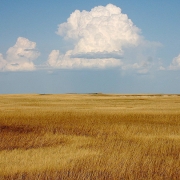
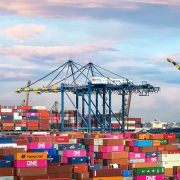 Barrett Ward, CC 0.0 License
Barrett Ward, CC 0.0 License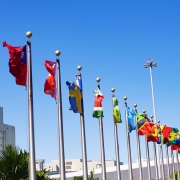
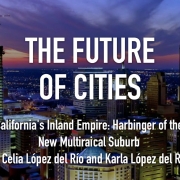
 D. Ramey Logan, used under CC 4.0 License
D. Ramey Logan, used under CC 4.0 License
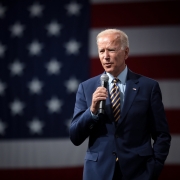 Gage Skidmore, used under CC 2.0 License
Gage Skidmore, used under CC 2.0 License
